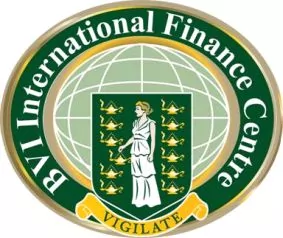The British Virgin Islands is a United Kingdom Overseas Territory located approximately 60 miles east of Puerto Rico in the Caribbean. The principal islands are Tortola and Virgin Gorda. Road Town, located on the island of Tortola is the capital city and financial center of the BVI.
As a British Overseas Territory, the BVI is known as an Offshore Finance Centre (OFC) and offers all the security traditionally associated with the British flag. The territory is responsible for its own internal self-Government, and is governed by a democratically elected Legislative and Executive Council. Democratic elections are held at least once every four years. BVI Law is based on the British Legal System and English Common Law. There are no exchange controls and no restrictions on movement of currency.
The BVI has gained a reputation as a World leading Offshore corporate domicile; in recent years it has introduced new products including innovative trust, insurance, and funds. It also has a predictable and business-friendly insolvency regime, as well as a Category 1 Shipping Registry.
The BVI's success as an International Finance Centre is due primarily to its politically-stable environment with a legislative framework developed in close consultation with the private sector. There continue to be good demand for financial services; as such the banking system in the BVI has been left untouched, relatively speaking, by the recent turmoil in the banking markets. Private and institutional investors continue to be attracted to the BVI because of its professional infrastructure, business friendly approach, flexibility, law framework, stability, well regulated regime and tax neutrality. Key BVI advantages also include a dedicated commercial court; and absence of exchange controls, with the US dollar being the legal tender. High taxation, overly complex laws and excessive regulations in many industrialized countries, and political turbulence and economic uncertainty in developing Countries, are some of the factors influencing the growth in demand. All banks are well capitalized and all have been profitable in recent years.
Other factors which have also been essential contributors to the BVI's success include an enlightened Financial Services Commission (FSC) which is an independent regulatory authority to ensure that all activities of the BVI financial services industry operates within International standards of best practice and a highly efficient BVI Companies Registry. The BVI's financial services industry weathered the storm very well during the financial crisis mainly due in part to its reputation as a well regulated Offshore Finance Centre (OFC) that is internationally recognized and respected. The BVI Financial Services Commission (FSC) has maintained tight regulation to safeguard the integrity of the jurisdiction, and continues to initiate legislation which keeps the Territory's laws amongst the most advanced and flexible to be found in any of the Offshore Finance Centers (OFCs).
At the end of December 2009, total assets for all the banks amounted to nearly $2.5 billion, almost all of which related to the general banks. Total capital amounted to $402 million and total pretax/post tax profits to $59 million. The aggregate equity to total assets is 16 percent. The system is also highly liquid; of the aggregate balance-sheet size of $2.5 billion, $927 million (37 percent) takes the form of liquid assets. Almost all of these liquid assets are placed with the head office/parent bank overseas, as there is no interbank bank market in the BVI.
BVI law provides for three classes of banking licences: a general banking licence, a restricted Class I banking licence, and a restricted Class II banking licence. A general banking licence permits the holder to conduct banking business within and outside the BVI. A restricted Class I banking licence and a restricted Class II banking licence do not allow the respective holders to take deposits or make loans to BVI residents except in the case of corporations. (The difference between a Class I and Class II licence relates to the manner in which they can deal with BVI corporations.)
There are six general banking licences, one Class I licence and no Class II licence. Of the six general licences, three are branches of overseas banks and three are locally incorporated. Of the three locally incorporated, two are subsidiaries of overseas banks and one is a BVI Government owned bank.
The three branches of overseas banks are Banco Popular de Puerto Rico, First Bank Puerto Rico and First Caribbean International Bank (Cayman) Limited. The two subsidiary banks are Scotiabank (British Virgin Islands) Limited (Canada) and VP Bank (BVI) Limited (Liechtenstein). The Government-owned bank, National Bank of the Virgin Islands Limited was formerly the Development Bank of the Virgin Islands.
All banks offer a full range of typical personal and commercial services, and a host of ATM machines for added convenience. They also provide various related services for wealth/asset management. Wealth/asset management business may be directed to the banks through independent asset managers either located in the BVI or overseas, or through the parent offices. The risk-based supervision recognizes the particular attributes of banking business in the BVI and the risks involved. Credit risk is low and usually well secured and there is little market and liquidity risk as these are managed by head offices. Credit concentrations are also low.
Financial services businesses, corporations, trusts and funds as well as individual savers from around the World have chosen to place their money and confidence in the many banking services the BVI's sector has to offer.
The content of this article is intended to provide a general guide to the subject matter. Specialist advice should be sought about your specific circumstances.


